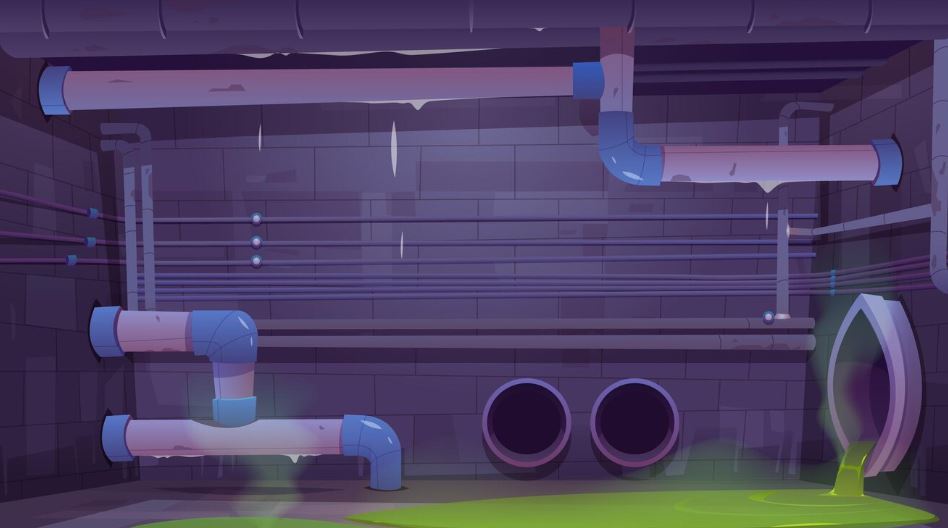The Role of Geotechnical Studies in Successful Pipeline Construction

In the intricate web of modern infrastructure development, pipelines stand as lifelines, facilitating the efficient transportation of essential resources. Behind the seamless flow of oil, gas, water, and other vital commodities lies a crucial yet often overlooked factor—geotechnical studies. These studies play a pivotal role in ensuring the success and longevity of pipeline construction projects. This article delves into the significance of geotechnical studies, shedding light on the indispensable contribution they make to the intricate process of pipeline development.
Understanding Geotechnical Studies:
At its core, geotechnical engineering involves the study of soil, rocks, and the subsurface conditions of a site. In the context of pipeline construction, a comprehensive geotechnical study becomes the foundation upon which the entire project rests. By analyzing the physical and mechanical properties of the soil, geotechnical engineers can make informed decisions about the design, materials, and construction methods, ultimately influencing the pipeline’s performance over time.
Site-Specific Challenges and Solutions:
Each Pipeline Construction In Dubai comes with its unique set of challenges, dictated by the geographical and geological characteristics of the site. Geotechnical studies provide invaluable insights into these challenges, helping engineers tailor their approach to the specific conditions they will encounter. Whether dealing with expansive soils, seismic activity, or varying groundwater levels, a detailed understanding of the subsurface conditions enables the implementation of targeted solutions, ensuring the pipeline’s resilience in the face of adversity.
Foundation for Design and Material Selection:
The success of a pipeline construction project heavily relies on the appropriateness of its design and materials. Geotechnical studies assist in determining the load-bearing capacity of the soil, potential settlement issues, and the overall stability of the pipeline route. Armed with this knowledge, engineers can make informed decisions regarding the pipeline’s alignment, trenching depth, and the selection of materials resistant to corrosion or other environmental factors. The result is a robust and durable infrastructure that stands the test of time.
Mitigating Environmental Impact:
As the global community increasingly emphasizes sustainable development, minimizing the environmental impact of infrastructure projects has become paramount Road Contracting Companies In UAE. Geotechnical studies contribute to this goal by identifying environmentally sensitive areas and proposing measures to mitigate potential damage. By understanding the local ecology and topography, engineers can design pipelines that harmonize with the environment, reducing the risk of soil erosion, habitat disruption, and other ecological concerns.
Risk Management and Cost Efficiency:
Geotechnical studies serve as a vital tool for risk management throughout the pipeline construction process. By identifying potential hazards such as landslides, subsidence, or geological faults, engineers can develop strategies to mitigate these risks and safeguard the pipeline’s integrity. This proactive approach not only enhances the safety of the project but also contributes to cost efficiency by preventing unexpected setbacks and costly repairs.
Regulatory Compliance:
In the realm of pipeline construction, adherence to regulatory standards is non-negotiable. Geotechnical studies provide crucial data that helps project teams comply with environmental regulations, safety guidelines, and other legal requirements. By incorporating these considerations into the early stages of the project, developers can navigate the regulatory landscape more smoothly, ensuring that the pipeline meets all necessary standards and certifications.
Innovations in Geotechnical Technologies:
Advancements in technology have significantly enhanced the precision and efficiency of geotechnical studies. Ground-penetrating radar, satellite imaging, and unmanned aerial vehicles (UAVs) have revolutionized the way engineers collect data about subsurface conditions. These innovations provide a more comprehensive and detailed understanding of the terrain, enabling engineers to make even more informed decisions during the design and construction phases. Real-time monitoring systems also allow for continuous assessment, helping identify any unexpected changes in soil conditions that may pose a threat to the pipeline’s stability.
Community Engagement and Social Considerations:
Beyond the technical aspects, geotechnical studies contribute to successful pipeline construction by incorporating community engagement and social considerations. Understanding the socio-economic and cultural landscape of the areas traversed by the pipeline is crucial for fostering positive relationships with local communities. Geotechnical engineers work hand-in-hand with social scientists to assess potential impacts on local livelihoods, cultural heritage, and access to resources. By integrating community perspectives into the project planning, developers can enhance acceptance and cooperation, mitigating potential conflicts that may arise during construction.
Climate Change Resilience:
In an era marked by climate change, the adaptability of infrastructure projects becomes paramount. Geotechnical studies now include considerations for climate change resilience, assessing how rising temperatures, extreme weather events, and sea-level changes might affect the pipeline’s performance. By factoring in these climate-related variables, engineers can design pipelines that not only withstand current conditions but also remain robust in the face of anticipated climate shifts, ensuring the longevity of the infrastructure amidst an evolving environmental landscape.
Education and Professional Development:
The importance of geotechnical studies in pipeline construction extends beyond individual projects to the broader professional landscape. Ongoing education and professional development in geotechnical engineering ensure that practitioners stay abreast of the latest methodologies, technologies, and best practices. Organizations and academic institutions play a crucial role in fostering a culture of continuous learning, empowering geotechnical engineers to tackle new challenges and contribute to the evolution of the field.
Case Studies:
Examining real-world examples provides insight into the tangible impact of geotechnical studies on pipeline construction. Case studies detailing successful projects showcase how comprehensive geotechnical investigations have led to innovative solutions, minimized risks, and optimized construction processes. Analyzing these cases helps future projects learn from past experiences, refining their approach and building on the industry’s collective knowledge.
Conclusion:
In the grand tapestry of pipeline construction, geotechnical studies emerge as the unsung heroes, laying the groundwork for success. As we look towards a future where sustainable and resilient infrastructure is paramount, the role of geotechnical engineering becomes increasingly indispensable. By investing in thorough geotechnical studies, the pipeline construction industry can build not only robust physical structures but also a sustainable legacy that harmonizes with the environment and serves the needs of generations to come.


 English
English 


